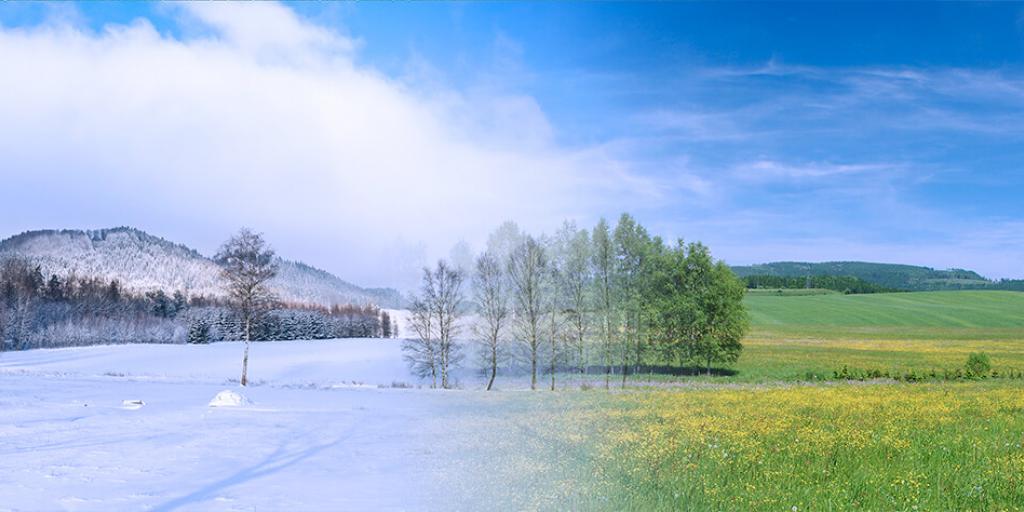
A Sign of God’s Creation
Cultures around the world have long viewed the shortest day of the year, December 21 or 22 (in the northern hemisphere), as a day for special ceremony and celebration. As the Christmas season—filled with the trappings of modern materialism cloaking ancient paganism—recedes into our memories, it is easy to have a negative view of the “winter solstice season” now behind us.
From A to Z, the winter solstice has played a pivotal part in pagan religious practices throughout history—from the Amaterasu celebration in seventh-century Japan (celebrating the reemergence of the sun goddess from her cave) to the Ziemassvetkic festival in ancient Latvia (honoring the birth of Dievs, the supreme god of Latvian mythology).
Pagan worship of and on the winter solstice is condemned by Scripture (Jeremiah 10:1–4). However, if we view the wonders of God’s creation in the way He intends us to, we can consider what Paul said in Romans 1:20 and allow this time of the year to help us appreciate one of the many wonderful things the true God has done. Paul wrote, “For since the creation of the world, His invisible attributes are clearly seen, being understood by the things that are made, even His eternal power and Godhead” (Romans 1:20).
The winter solstice itself has no religious significance. It simply marks a key point in the wondrous procession of the seasons God has created. For those of us, living in temperate climates, who have grown accustomed to the change of seasons, it would be difficult to imagine an October without the changing colors of the leaves, or an April without newly budding flowers.
But there is more. In the northern climates, many of the plants God created actually need the cold winter temperatures. Many require the process of vernalization—“a physiological process in some plants where the flowers, or sometimes the seeds, must go through a prolonged period of cold in order to blossom or germinate in the spring. The amount of cold required by a plant is measured in chill hours.” Apples generally require the most “chill hours,” and apricots, peaches, nuts, and berries also require a certain number of “chill hours” to produce. For these plants, the short, cold days of winter are necessary.
And how about that maple syrup you love to pour on your waffles in the morning? Without the winter cold, followed by the beginning of spring, that golden sweet nectar would not flow. My family and I look forward to the time when the nights are still below freezing, but the days warm up just a bit above the 32-degree mark. When that happens, our maple trees are ready to be tapped. With just a little bit of work, the buckets of sap will be full and ready to boil down to that delicious reward.
None of these gems of God’s creation would be possible without the change of seasons. And, yes, the winter solstice is part of it. How sad it is that so many deceived people have observed the occasion with fear and superstition. Many of our ancestors were so afraid that their world would descend into darkness that when the sun’s warmth began to last longer, they felt compelled to worship the sun, rather than the God who created it. With this in mind, God told the Israelites, “Do not learn the way of the Gentiles; do not be dismayed at the signs of heaven, for the Gentiles are dismayed at them” (Jeremiah 10:1–4).
From A to Z, from Amaterasu to Ziemassvetki, millions before us, blinded by Satan’s deception, “exchanged the truth of God for the lie, and worshiped and served the creature rather than the Creator” (Romans 1:25). How sad it is that, in varied ways, much of this same deception continues today.
If you would like to know more about God’s true Holy Days, which honor Him and reveal His plan for humanity, read our booklet, The Holy Days: God’s Master Plan. It will open your eyes to the plan that the Creator of our world and our universe has set in motion for you, me, and all of mankind.
Stay up to date with our Weekly Digest Email!
Tomorrow's World ComMentary Podcast
Subscribe to Tomorrow's World Commentary podcasts on iTunes and Google Play!



